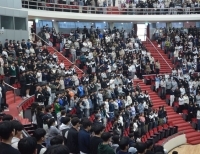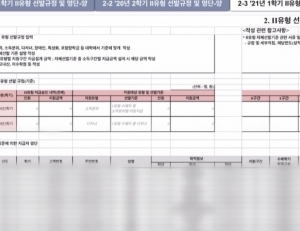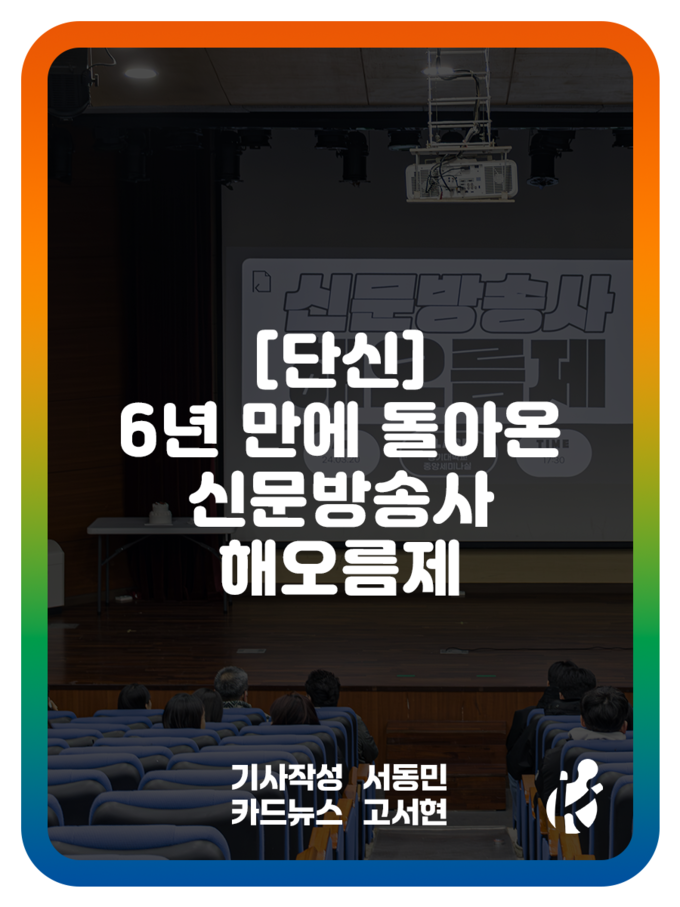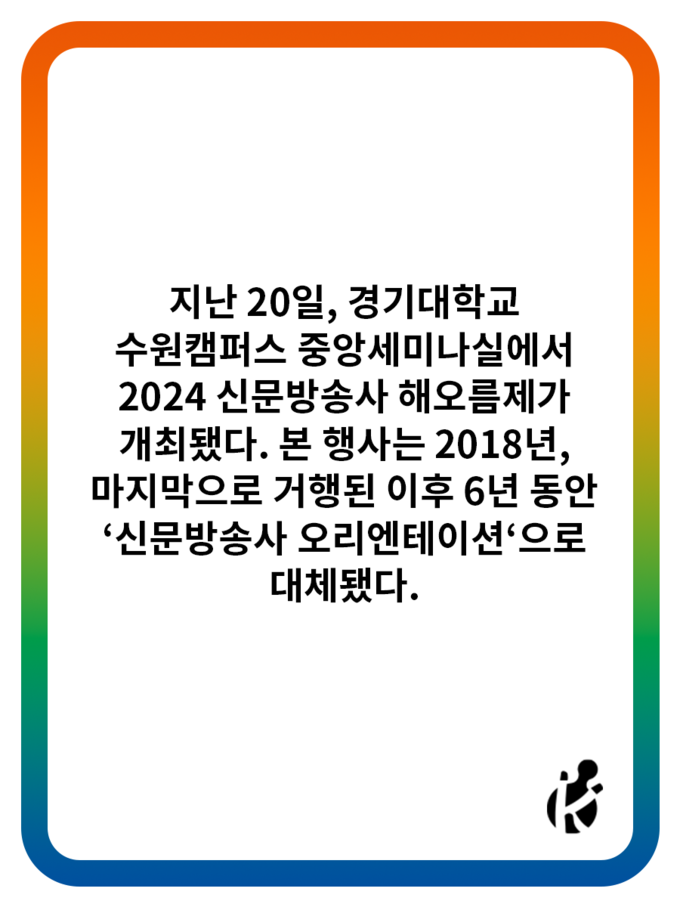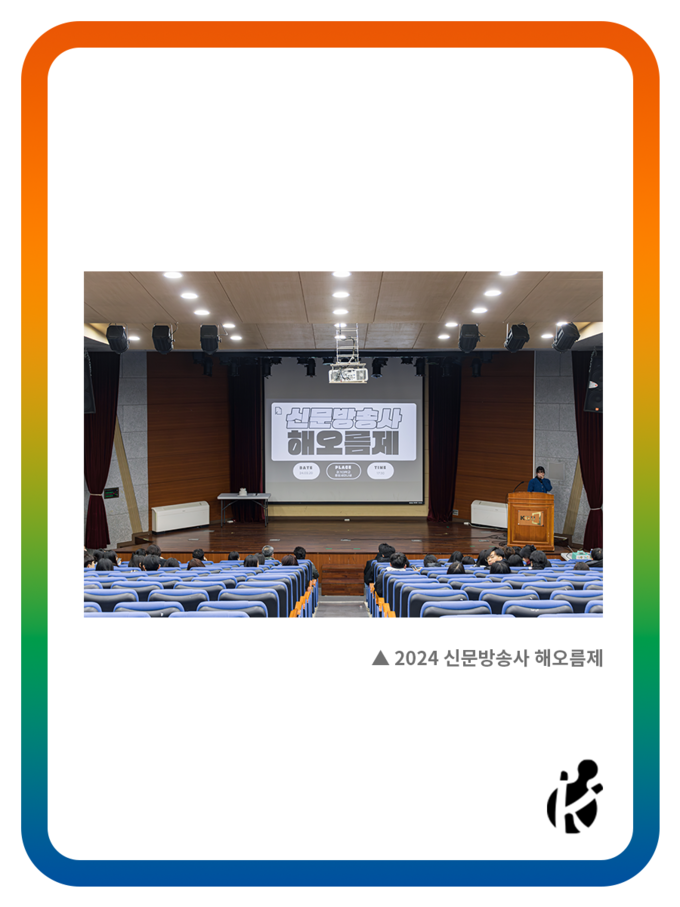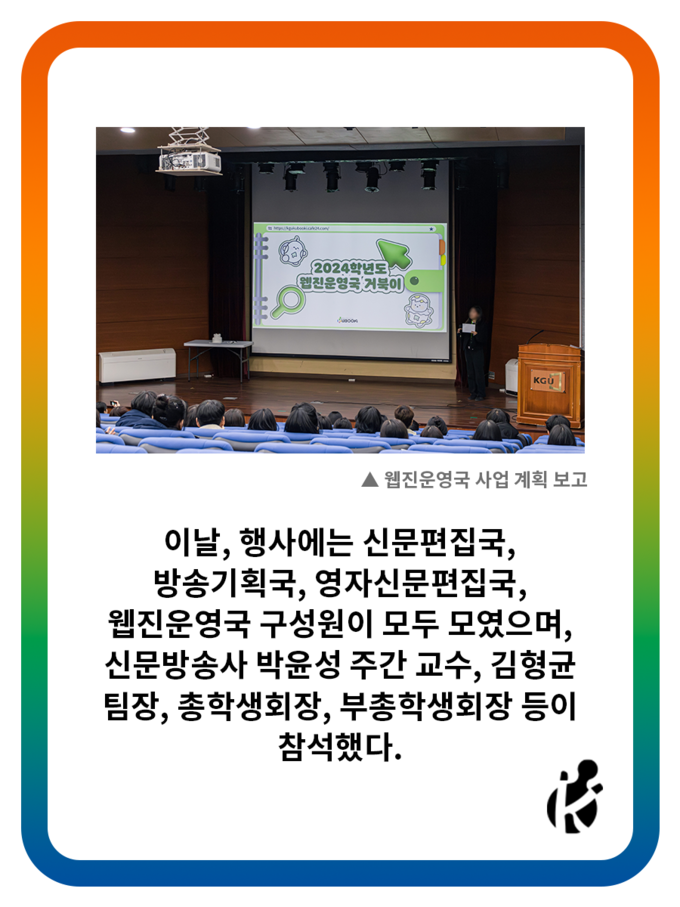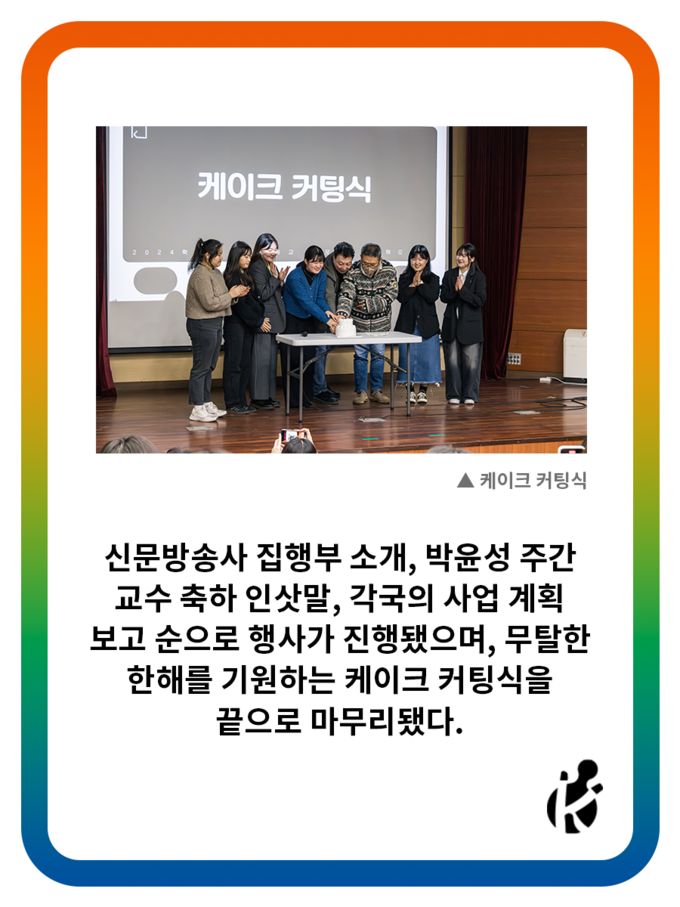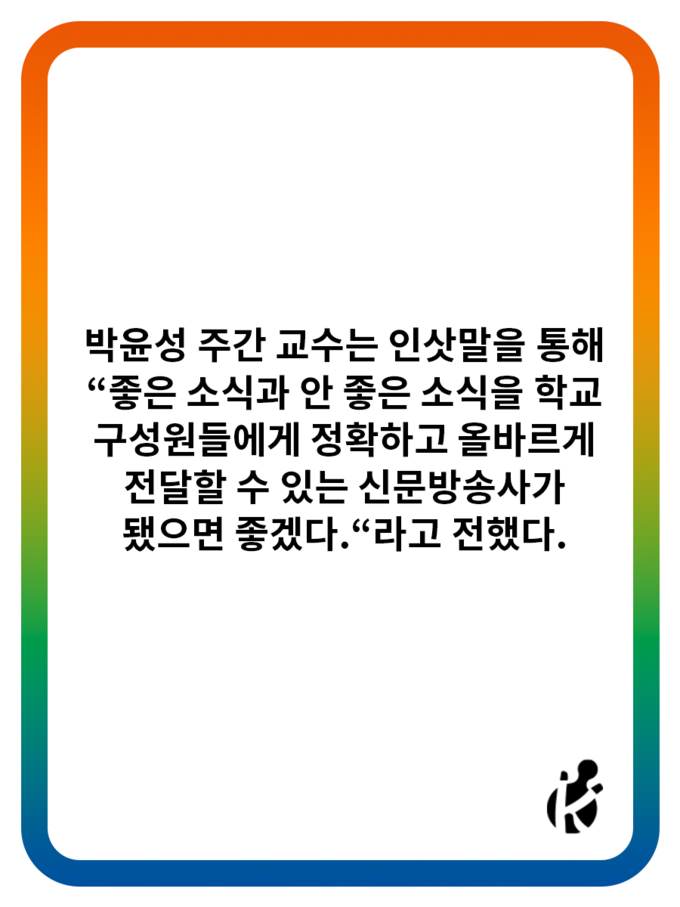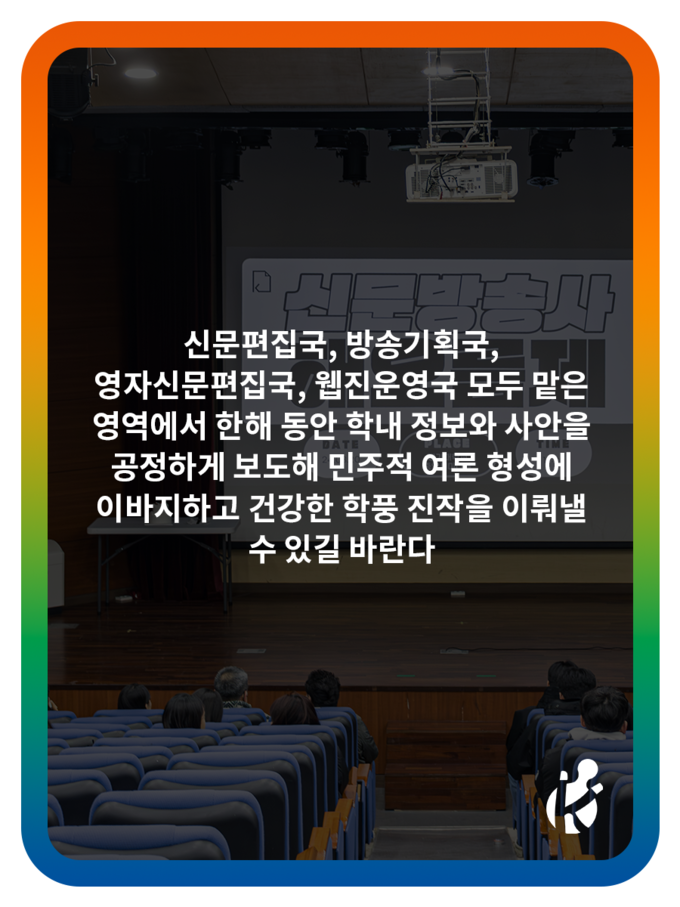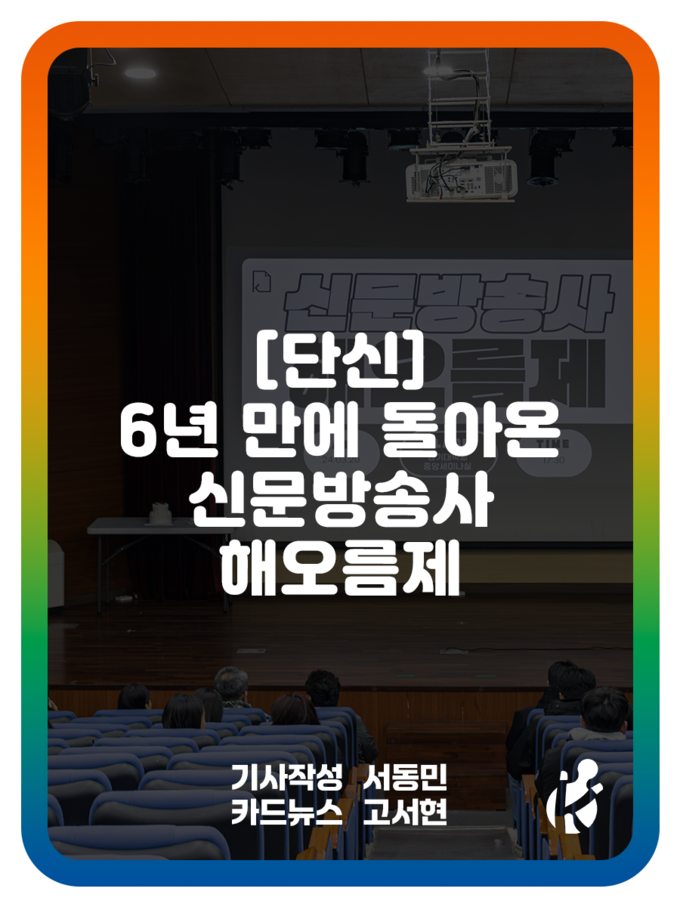Japan was originally scheduled to hold the Olympics in Tokyo on July 24, 2020. Through this opportunity, Japan was hoping for an increase in economic growth and tourism. However, the Olympics have been postponed until next summer due to COVID-19, which hit the country earlier this year. However, there have also been concerns that the Olympics, which should be held in harmony with various nations, are dangerous due to frequent earthquakes and radiation. The Pharos wants to introduce what the Tokyo Olympics are seeking and find out why they are controversial even before they are held.
The 2020 Summer Olympics in Tokyo are attracting many people’s attention, with not only soccer, wrestling, and swimming but also sports that have been adopted and eliminated, as well as events that cannot be left out when it comes to the Olympics. In particular, Korea, a baseball powerhouse, is looking to hunt for medals following baseball’s disappearance after the 2008 Beijing Olympics. In addition, the International Olympic Committee has added a variety of mixed events, including the 4X400 track and field mixed relay and the triathlon mixed group relay, with a focus on the pursuit of gender equality. New events aimed at younger generations such as skateboarding, surfing and FIBA 3X3 (three to three basketball) were also registered. The mascot was conceived by Japanese designer Ryom Taniguchi with two characters, Miraitowa and Someity. In Japanese, Miraitowa is a word that combines “Mirai” (future) and “Towa” (eternal). In other words, it expresses the desire for the future to continue forever. Miraitowa is a futuristic robot with superpowers, including teleportation, which features a checkered pattern of the Olympic emblem, with its head and torso in blue check patterns. Someity is the mascot for the 2020 Tokyo Paralympics and was coined in a way that is similar to the pronunciation of “Flowering Cherry” in Janpanese. The pink-checkered pattern of Someity shows cherry blossoms.
The 2020 Tokyo Olympics hope to be eco-friendly and promote recycling. For the first time in Olympic and Paralympic history, all medal podiums will be produced from recycled material that will later be recycled. In addition, the Olympic and Paralympic medals will be made of electronic equipment waste. Japan is the second highest plastic-using country after the United States. As part of the project, Japanese citizens are encouraged to donate plastic waste such as shampoo and detergent bottles. The collected waste will be gathered by installing recycling boxes in AEON group stores, a large Japanese retail group. The collected waste will be shipped to P&G, a partner company for the 2020 Tokyo Olympics, and will be reborn as medal podiums. After the closing of the Olympics, the podiums will be used for educational purposes related to “Olympic and Paralympic activities.” The project aims to benefit all Olympic members, including athletes and their families around the world. It also aims to expand the ongoing global partnership between the IOC and P&G while at the same time achieving mutual sustainability goals. In addition, the podium project emphasizes the Tokyo Organizing Committee’s efforts to involve the country of Japan as a whole in hosting the Olympic Games and provides an opportunity for all Japanese to participate in the preparatory process. It also contributes to major U.N. sustainable development goals, such as “Responsible Consumption and Production,” “Life Below Water” and “Partnerships for the Goals,” and can be expected to have a positive effect.
Japan hosted the Olympics in Tokyo in 1964 before being chosen as the location for the coming games. What was the situation at the time of the 1964 games compared to that of the 2020 Tokyo Olympics, and what was and what is Japanese society trying to capture? The 1964 Tokyo Olympics were the first summer Olympics to be held in Asia. Originally, they were supposed to be held in 1940, but it was not possible due to the Sino-Japanese War and would not be held until 24 years later. Through the Olympics, Japan tried to attract overseas visitors to plant an image of economic growth after overcoming military defeat and transform its confrontational image into a peace-loving one. Since then, Japanese companies such as Sony have captivated global consumers, and the opening of the Tokaido Shinkansen high-speed railway and real time broadcasting from the first stationary satellite have rehabilitated Japan’s image. On the other hand, the 2020 Tokyo Olympics aim to dispel the perception that Japan is a dangerous country beset with earthquakes and tsunamis, such as the one that devastated the northeast area in 2011. It also seeks to strengthen Japanese brands and change the stagnant economic situation in Japan. The 2020 Tokyo Olympics also highlight the acceptance of changed social perceptions, including the addition of mixed men’s and women’s events in archery allowing female athletes’ participation. The two Olympics are similar in terms of their Tokyo location, but as a time gap exists, the events and goals of the games are different.
The 2020 Tokyo Olympics had these goals, but the event was postponed because of the coronavirus. COVID-19 has rapidly spread respiratory diseases around the world and caused economic crises and many deaths. As various sports events were postponed by COVID-19, opinions were divided on the Tokyo Olympics. Abe had expressed his desire to quickly overcome the COVID-19 spread and safely host the prearranged Olympics, but eventually agreed with the IOC president to announce the postponement. The Tokyo Olympics, which were expected to be held in July 2020, marked the first delay in Olympic history. It will postpone the Olympics until the summer of 2021, but will still use the name “2020 Tokyo Olympics.”
The Olympic postponement has widened the gap in time to respond to the coronavirus situation, making the players and the people less burdened. The hosting issue for COVID-19 has been resolved to some extent, but there are still some concerns about the Tokyo Olympics. A nearby city turned into a city of death when massive amounts of radiation were emitted in the wake of the Fukushima Daiichi nuclear disaster in 2011. The contamination from radiation is still ongoing eight years later, but Japan planned to hold some games of the 2020 Tokyo Olympics just 70 kilometers away from Fukushima. KBS reporters found that the radiation levels were eight times higher than those released by the Japanese government and up to six times higher than the level of cesium. Nevertheless, the Japanese government said that it would use food grown in the Fukushima region for the athletes’ meals, so it caused a huge controversy. In the end, the Korean Sports Council said it would provide lunch boxes made of Korean food as much as possible at the Henn Na Hotel, where the players will stay, as a countermeasure. However, it is not certain whether the council can safely deliver and make lunch boxes because of the danger of food poisoning caused by hot weather and the insufficient kitchen space at Henn Na Hotel.
Japan hopes to toast the successful hosting of the Olympics by overcoming COVID-19 and postponing the Olympics until 2021. However, there are still many problems such as the bad smell of the Tokyo swimming pool due to a poor sewage treatment system and radiation problems, so people are not sure if they will be safe. The postponement of the Tokyo Olympics is a decision that was made for everyone, as the place for the harmonious competition of nations should be peaceful. There are many conflicting opinions and controversies afflicting the Olympics even though the Tokyo Olympics have yet to be held. There is a saying, “He who would gather honey must bear the sting of the bees.” This means that you need the courage to overcome danger in order to achieve what you want. The Pharos hopes that Japan will overcome COVID-19 and any unresolved safety issues and hold an Olympics where peace lasts forever in the future.
Planning Editor•KIM JIN•coo0714@naver.com
74th Cub Reporter•YOO HYUNGJIN•yoo9428@naver.com
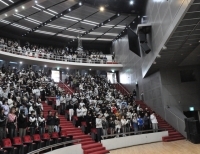 What Happened in KGU? : 수원캠퍼스 학생총회 편
On April 4th, a general meeting of students was held in the Tele-convention center at the Suwon campus. The contents were the same as the general meeting of students in the Seoul campus: the first part was for agenda announcement, the second part was about the Membership Training for whole university, and the third part was simple Q&A time. In the first part, the agendas were all the same as the ones for the Seoul campus, and the result of the ...
What Happened in KGU? : 수원캠퍼스 학생총회 편
On April 4th, a general meeting of students was held in the Tele-convention center at the Suwon campus. The contents were the same as the general meeting of students in the Seoul campus: the first part was for agenda announcement, the second part was about the Membership Training for whole university, and the third part was simple Q&A time. In the first part, the agendas were all the same as the ones for the Seoul campus, and the result of the ...

 [타 대학보 축사] 늘 그랬듯, 묵묵히
[타 대학보 축사] 늘 그랬듯, 묵묵히
 [와이파이] 큰 박스에 달랑 물건 하나, 과대포장 규제 정책 시행은 언제쯤
[와이파이] 큰 박스에 달랑 물건 하나, 과대포장 규제 정책 시행은 언제쯤
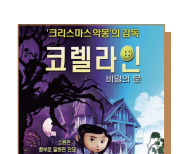 [문화산책] 이 세계는 멋져 보이지만 모두 환상이야
[문화산책] 이 세계는 멋져 보이지만 모두 환상이야
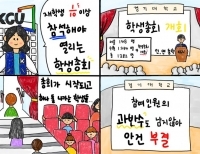 [네컷만화] 학생총회
[네컷만화] 학생총회

 목록
목록





